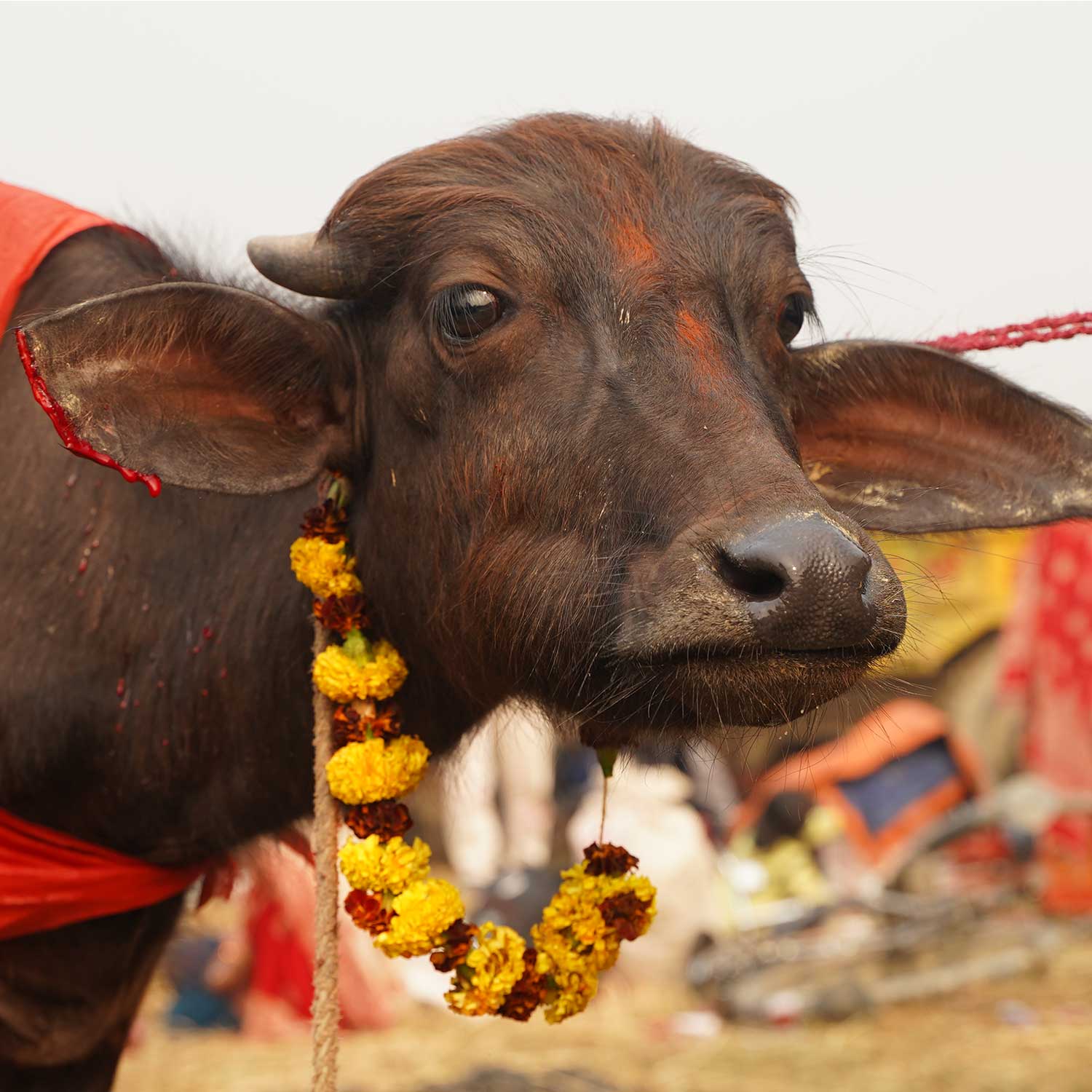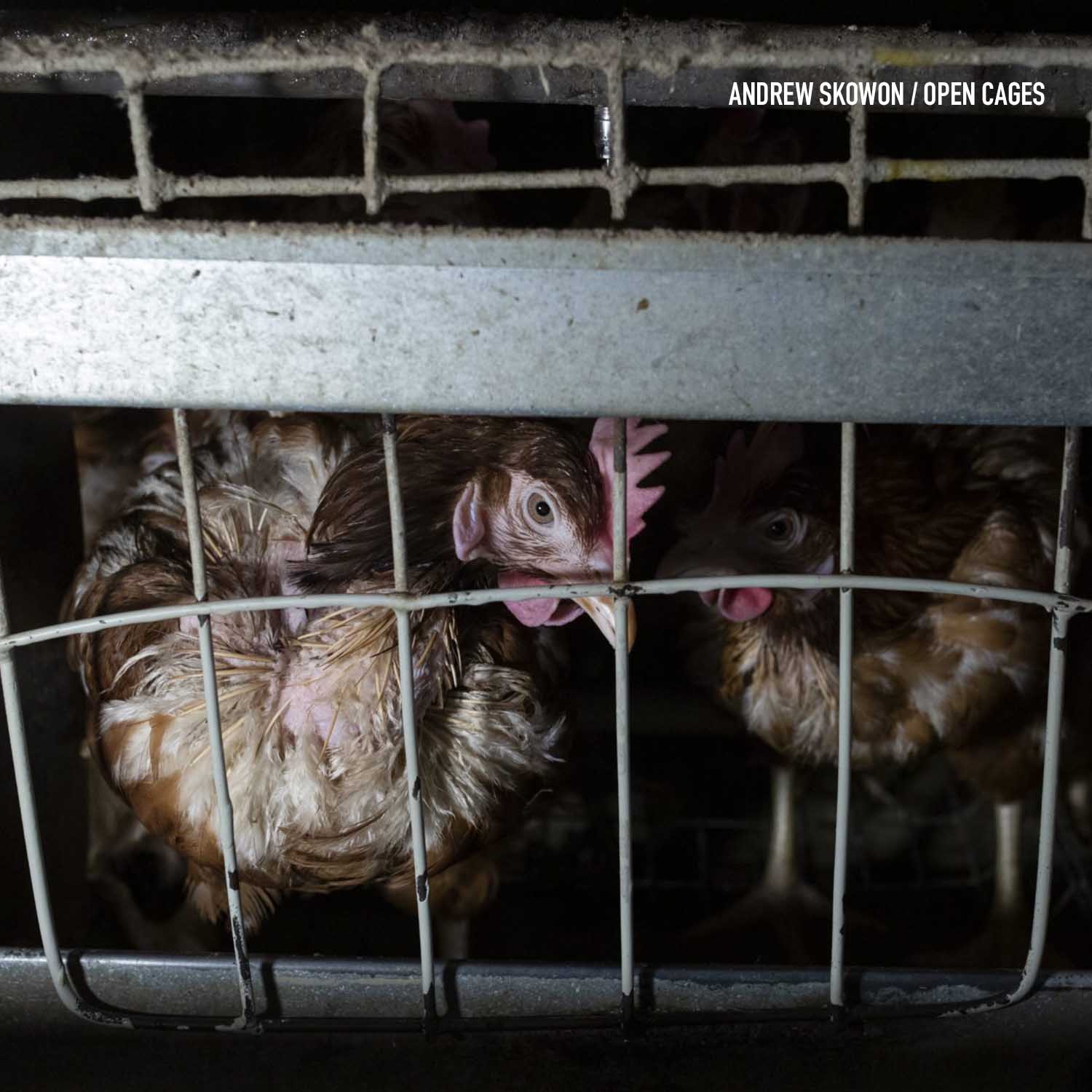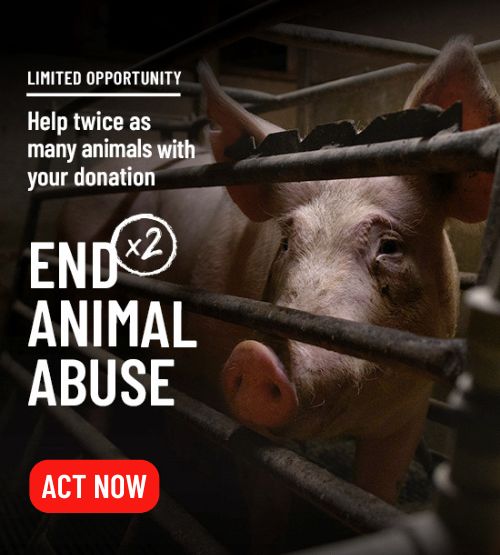Investigation: Spanish Animal Export Cruelty Exposed
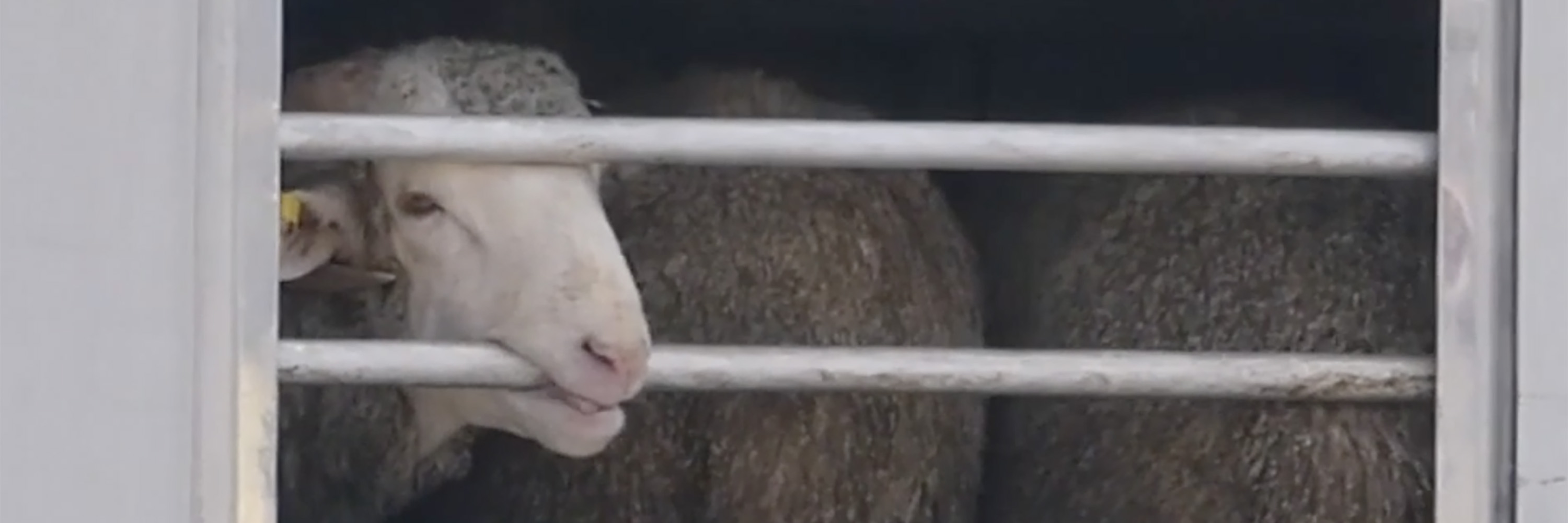
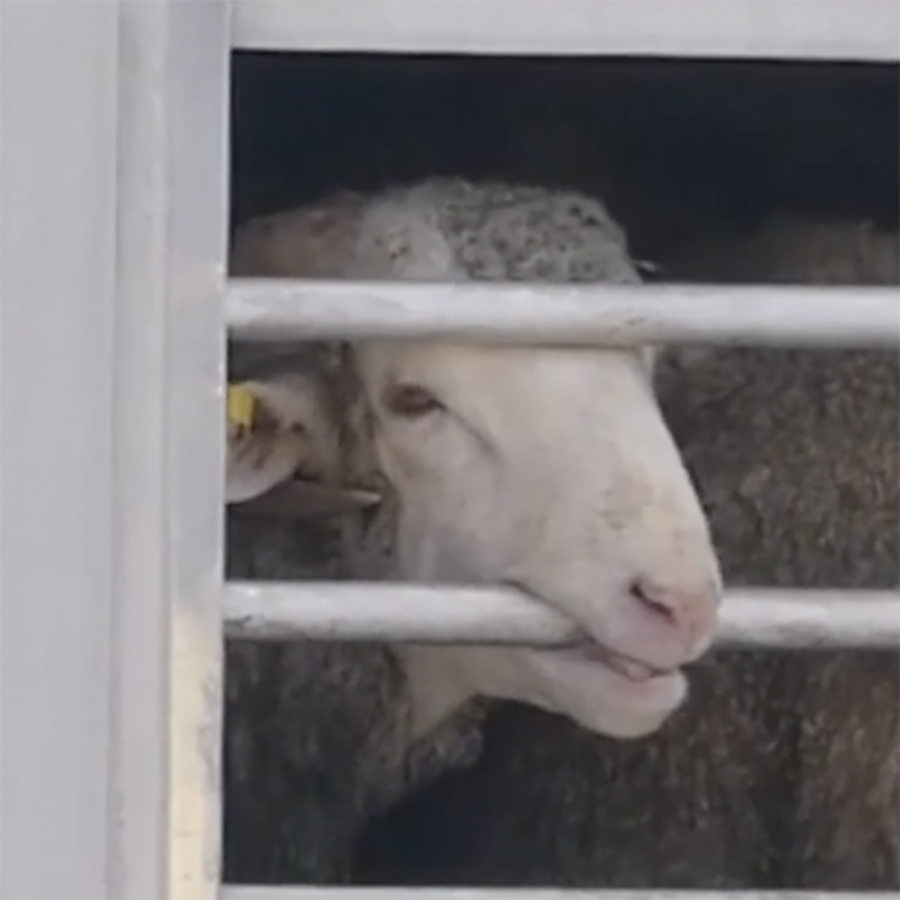
A new investigation by a collective of animal protection organizations depicts the brutality and mistreatment suffered by animals exported from Spain during transport and slaughter.
THE DETAILS: The investigation, carried out by Animals International and Animal Welfare Foundation, and in collaboration with Animal Equality and Compassion in World Farming, reveals the enormous suffering of live animals during their transport from Spain, as well as the cruelty of their slaughter in the slaughterhouses of Lebanon
The investigation was able to document the presence of Spanish animals in slaughterhouses in these countries and showed how they are cruelly treated during slaughter. Killed without stunning, the animals are first stabbed in the neck and then left to bleed out until death. The newly published images recorded in Lebanon show how slaughterhouse operators put their hands in the eyes of the animals to immobilize them. Among the slaughtered animals, several Spanish identification ear tags were documented.
DISREGARDING REGULATIONS: In the images recorded at the Spanish ports of Cartagena and Tarragona, operators are filmed resorting to violence to force the animals to move, repeatedly dragging animals by their legs and beating them. The investigation also shows how lame or injured animals—animals who are not allowed to travel according to regulations—are forced to board by being beaten. These practices violate the European Union regulation on the protection of animals during transport, explicitly prohibiting lifting or dragging the animals by their heads, ears, legs, or horns, or manipulating them in a way that causes them unnecessary pain or suffering.
EXCESSIVE HEAT: During the summer months, more than 346,000 cattle and sheep were exported to countries in the Middle East and North Africa where there are no laws to protect animals from extreme cruelty before and during slaughter. Based on current animal welfare laws, many of these trips should not have been authorized because temperatures during the journey exceeded the maximum allowed by European regulations.
The investigation shows how the animals endure enormous heat stress after hours of waiting in the trucks when the temperature exceeds 93 ºF. European regulations, as well as legislation from Spain’s Ministry of Agriculture, Fisheries, and Food, stipulate that a trip should not be authorized if the temperature inside the vehicle exceeds 93 ºF and should even be sanctioned if it exceeds 95 ºF. In a desperate attempt to flee the oppressive conditions, some animals fall into the sea and swim adrift without the port workers noticing.
WHAT THEY’RE SAYING: “There is a lack of supervision and control in the ports, both in the (European) departure ports and in the (third country) arrival ports, where there is no appropriate infrastructure to inspect and ensure adequate animal welfare. European trade in live animals is not acceptable or sustainable. The price to be paid by animals, taxpayers, and the environment is too high, as is the risk of spreading zoonotic diseases.” said Maria Boada, AWF|TSB veterinarian.
THE BACKGROUND: Currently, large numbers of animals are sent from Spanish ports to Saudi Arabia, the farthest country of all export destinations, and one with very high temperatures. After Australia stopped exporting animals to Saudi Arabia due to the country’s refusal to follow animal welfare guidelines, Spain and Romania, which are less strict with welfare standards, stepped in to take over the commercial animal trade. Another of the main destinations for Spanish animal exports is Libya, a country immersed in an armed conflict. Given the fighting, the welfare of animals during their arrival to Libyan ports cannot be guaranteed either.
In Europe, Spain is number one in live cow exports and is second (after Romania) in the exportation of sheep. In 2019, Spanish exports of live animals increased by 28% compared to 2018, with 901,392 animals (cattle and sheep) sent by sea. That number is predicted to be higher in 2020 because of the decline in domestic consumption caused by COVID-19.
SPAIN IMPORTS ANIMALS, TOO: Spain also imports animals from all over Europe to fatten them up for sale, including calves with little economic value from European milk-producing countries. These animals, which in many cases are still unweaned, are transported to Spain and suffer greatly during the road trip. These transports are carried out despite scientific evidence showing the fragility of their immune system and the fact that they are not fed during the journey due to inadequate truck supply systems. Once in Spain, the animals are fattened and then slaughtered either there or by other countries after sea transport—countries whose slaughter methods would not be acceptable on European territory.
A WELL-KNOWN PROBLEM: The European Commission itself acknowledged in a 2019 report that there are deficiencies in long-distance animal transport by sea and road and that the welfare of the animals cannot be guaranteed. Worldwide, more than 2 billion farmed animals suffer from long-distance travel each year and many will die during the journey. During sea voyages, some are thrown overboard, their bodies appearing later on nearby beaches.
WHAT WE’RE SAYING: “As this investigation shows, animal abuse occurs at all stages of the process. From days-long agonizing journeys by truck and boat to their slaughter at their destination, animals exported from Spain suffer tremendously. It’s time for the European Union to act and ban these long-distance trips to countries that do not comply with European regulations,” says Silvia Barquero, Executive Director of Animal Equality Spain.
WHAT COMES NEXT: While the consumption of meat is decreasing every year in Spain, exports are growing to compensate for this decline and also continue to grow. Currently, negotiations are underway to export live animals to several new countries, including Venezuela, Indonesia, Taiwan, and Algeria. In May 2020, after our Spanish live transport investigation found similar irregularities, we filed a lawsuit in Spain with the General Directorate of Health of Agricultural Production demanding that the export of live animals to these countries be stopped since their welfare cannot be ensured both during transport and in the country of their destination. In addition, our petition directed to the European Commission and the Ministry of Agriculture, Food and Fishing demanding the end of long-distance transports—a petition that has been signed by more than 19,000 people so far. Help us continue our campaign to halt live animal transport in Spain by sharing this story and please, spare more suffering by leaving animals off your plate.
READY TO MAKE THE SWITCH TO PLANT-BASED? WE CAN HELP!

